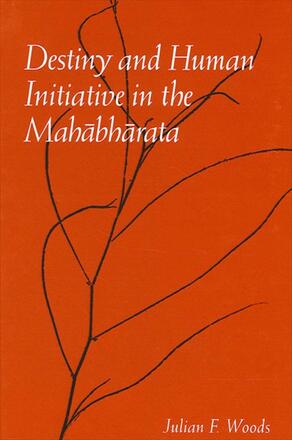
Destiny and Human Initiative in the Mahābhārata
Alternative formats available from:
Considers the questions of free will in the great India epic, the Mahabharata.
Description
Destiny and Human Initiative in the Mahabharata explores this epic's ongoing polemic regarding free will in the face of destiny. While the belief that human history is governed exclusively by external forces is evident in the Mahabharata, the epic also contains the commanding message of Kr's'n'a that the lives of individuals and societies may, and should indeed, be changed for the better through human initiative. Woods maintains that the resolution of this conundrum emerges from the epic's view of what it is to be a human being. We may harbor ideas about our self-determination and freedom, but the epic reveals that we are not at all free but trapped in a vicious cycle of birth and death that can be broken only when we realize that our precious ego-self with its sense of agency is a mental fiction. The Mahabharata admits to a modicum of freedom in everyday life which, from a higher perspective, is nothing but destiny in disguise.
Julian F. Woods is an independent scholar living in Montreal.
Reviews
"Woods demonstrates a genuine mastery of this immense epic and is thus able to present a convincing case on the moral ambiguities and doctrinal patterns of 'destiny' and 'human initiative' that runs throughout its mythical frame. I was particularly struck with Woods's eloquence. There is an almost imperceptible fusion of modern psychological insight and ancient Indian philosophy that makes Woods's language and insights particularly engaging, if not beautiful." — Jeffrey J. Kripal, author of Kali's Child: The Mystical and the Erotic in the Life and Teachings of Ramakrishna
"Woods takes a question that is not traditionally Indian and uses it successfully to tell the stories of the Mahabharata to illustrate the interplay of destiny and human agency. The result is an insightful path into the great epic as it relates to a fascinating philosophical issue." -- Robert Minor, author of The Religious, the Spiritual, and the Secular: Auroville and Secular India